Ravi Amarnath is counsel for the Ministry of the Attorney General (Constitutional Law Branch). As counsel, Ravi has appeared as lead counsel for Ontario before all levels of court, including the Supreme Court of Canada. Prior to commencing his practice, Ravi completed the BCL program at the University of Oxford and served as a law clerk at the British Columbia Court of Appeal.
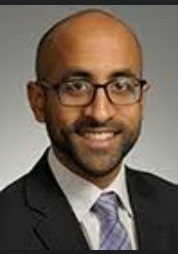
The Honourable Louise Arbour, C.C., G.O.Q. was appointed to the Supreme Court of Ontario in 1987 and the Court of Appeal for Ontario in 1990. In 1996, the Security Council of the United Nations appointed Madame Arbour Chief Prosecutor for the International Criminal Tribunals for the former Yugoslavia and Rwanda. In this role, she secured the first conviction for genocide (Rwanda) since the 1948 Genocide Convention and the first indictment for war crimes by a sitting European head of state (Serbian President Slobodan Milosevic).
She resigned as Chief Prosecutor to take up an appointment to the Supreme Court of Canada in 1999. She was appointed High Commissioner for Human Rights at the United Nations (2004-2008), and the UN Special Representative of the Secretary-General on International Migration (2017-2018). Madame Arbour, Senior Counsel at Borden Ladner Gervais LLP, was appointed in 2021 to lead an independent review into sexual misconduct in the Canadian Armed Forces.
Madame Arbour has received numerous honorary doctorates and awards. She is a Companion of the Order of Canada, a Grand Officer of the Ordre national du Québec and a Commander of the Ordre de Montréal.
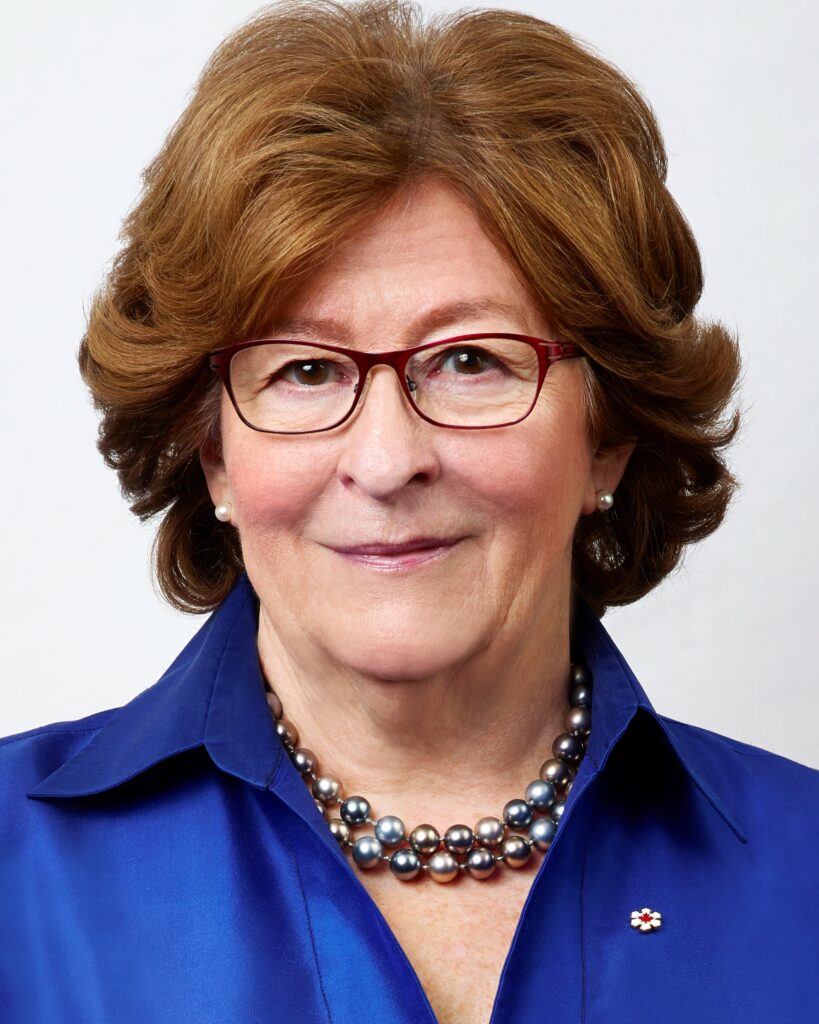
Cathy is the co-practice group leader of the Toronto Litigation Group and National Cybersecurity Working Group at Blake, Cassels & Graydon LLP. She practices “law nerd litigation” spanning multiple practice areas, including constitutional, privacy, competition, commercial and product liability cases. She has argued before all levels of court, including 18 appearances before the Supreme Court of Canada. She graduated from Osgoode Hall Law School in 1997 as gold medallist, before clerking for Chief Justice Lamer in 1997-98. Cathy worked as Professor Peter Hogg’s research assistant while attending Osgoode, helping prepare a new edition of Liability of the Crown. Cathy worked frequently with Professor Hogg throughout his advocacy career at Blakes, including on Royal Bank of Canada v. Trang, 2016 SCC 50, Kirkbi AG v. Ritvik Holdings Inc., 2005 SCC 65 and more than a dozen constitutional opinions. Cathy taught a seminar on privacy, freedom of information and access to courts at Osgoode from 2000-2008.
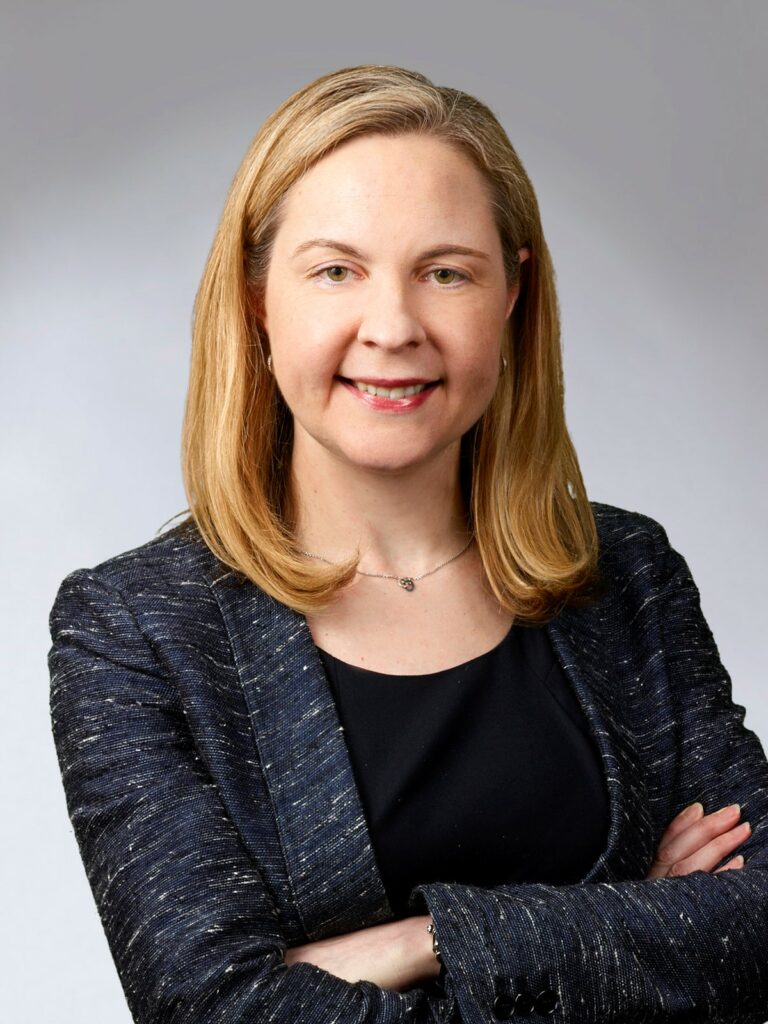
University Professor, former Dean of Osgoode Hall Law School (1972-77) and President of York University (1985-92), Harry Arthurs has also been an academic visitor at several Canadian, British and Commonwealth universities.
Arthurs’ publications range widely over the areas of legal education and the legal profession, legal history and legal theory, labour and administrative law, globalization and constitutionalism. His academic contributions have been recognized by his election as an Associate of the Canadian Institute for Advanced Research, a Fellow of the Royal Society of Canada and a Corresponding Fellow of the British Academy. He was awarded the Canada Council’s Killam Prize for his lifetime contributions to the social sciences (2002), the Bora Laskin Prize for his contributions to labour law (2003) and the International Labour Organization’s Decent Work Research Prize (jointly with Joseph Stiglitz) (2008).
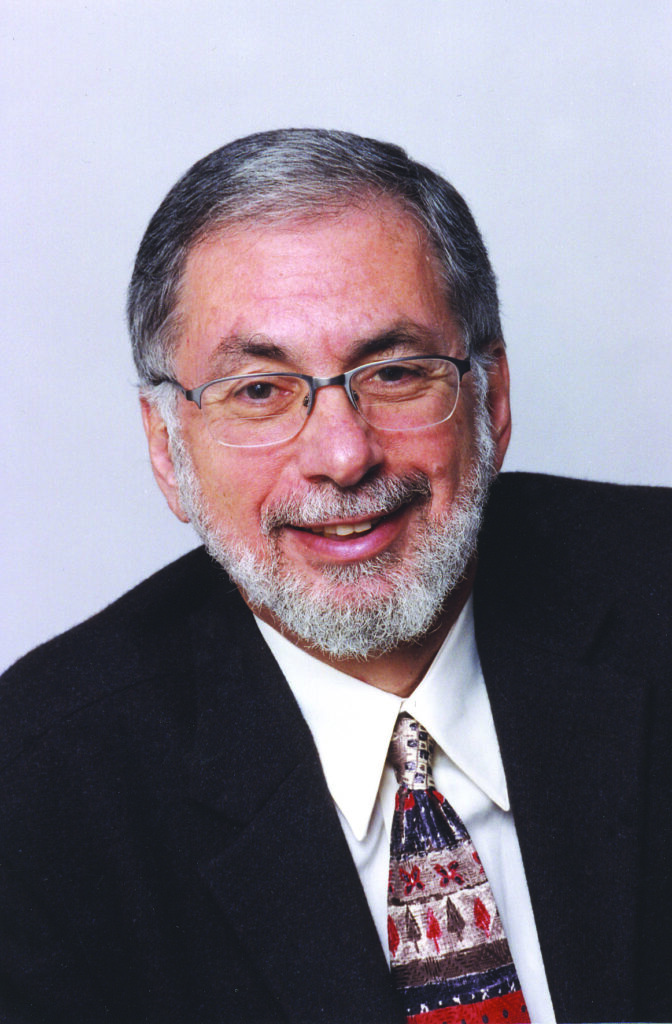
Professor Benjamin L. Berger is Professor and York Research Chair in Pluralism and Public Law at Osgoode Hall Law School. In 2020 he was elected as a Member of the College of the Royal Society of Canada. Professor Berger served as Associate Dean (Students) from 2015-2018. He holds an appointment as Professor (status only) in the Department for the Study of Religion at the University of Toronto and is a member of the faculty of the Graduate Program in Socio-Legal Studies at York University. Prior to joining Osgoode, he was an Associate Professor in the Faculty of Law, and was cross-appointed in the Department of Philosophy, at the University of Victoria, where he began teaching in 2004. He holds a JSD and LLM from Yale University, where he studied as a Fulbright Scholar and a SSHRC doctoral fellow. He earned his LLB and the Law Society Gold Medal from the University of Victoria, and was awarded the Gold Medal in Arts and the Governor General’s Academic Medal for his BA (Hons) studies at the University of Alberta. In 2002-2003, Professor Berger served as law clerk to the Rt. Honourable Beverley McLachlin, former Chief Justice of Canada.
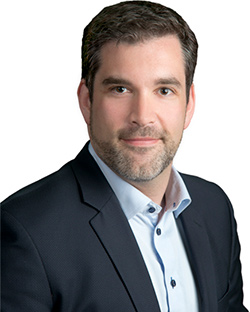
Jamie Cameron joined the faculty at Osgoode Hall Law School in 1984 and has been Professor Emerita since 2020. Her research and teaching interests focused on constitutional and public law issues, including the Charter of Rights and Freedoms, freedom of expression and the press, US constitutional law, and criminal law. Her publications include more than twelve edited books and she has appeared at the Supreme Court of Canada in a number of cases. Her Board service includes the Canadian Civil Liberties Association, BC Civil Liberties Association, and Centre for Free Expression, as well as a number of cultural boards. She was a member of the Ontario Review Board (2013-2022) and is currently a member of the Nunavut Review Board.
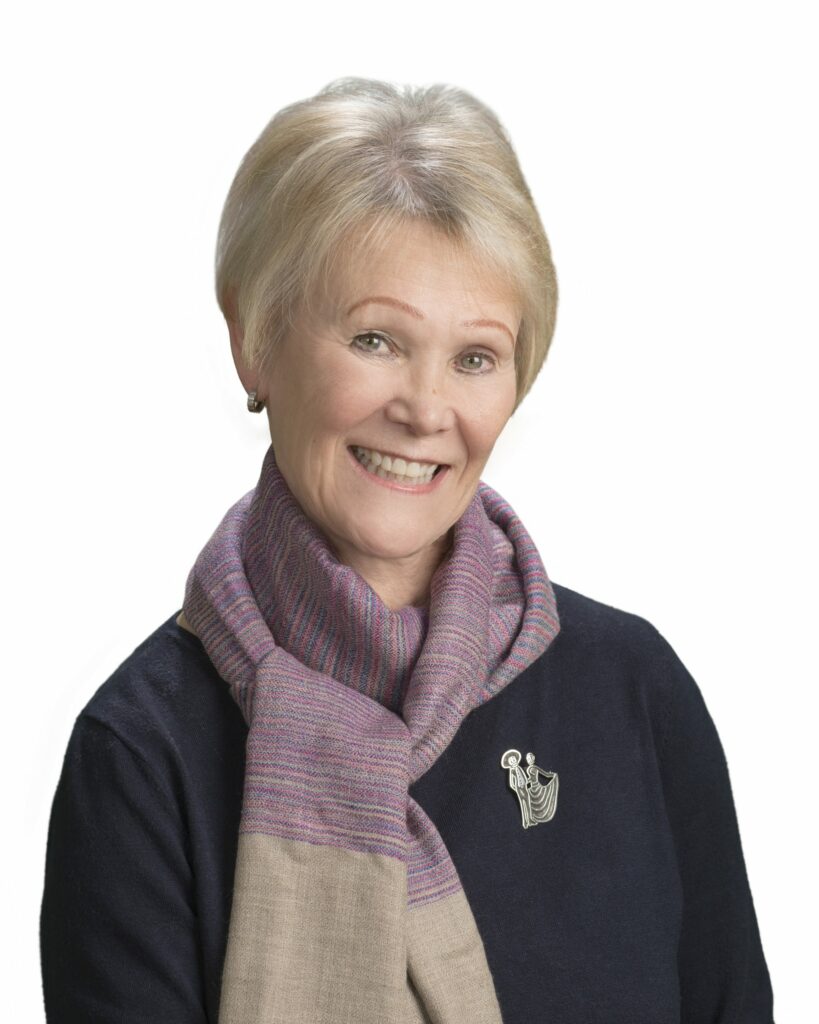
Sujit Choudhry practices constitutional, administrative, public, and human rights law in Canada and globally. He is head of Chambers for Hāki Chambers Global, a global public law chambers with expertise on legal matters with constitutional, international, transnational, and public interest dimensions. As one of Canada’s leading public law litigators, Sujit focuses on test cases with public interest and transnational dimensions. He regularly appears as counsel on judicial reviews, applications, arbitrations, public inquiries, and class actions. He frequently represents NGOs, legal clinics, and public interest organizations.
For over 20 years, he has been an advisor to constitutional reform, democracy support and peace processes, including in Cyprus, Egypt, Ethiopia, Jordan, Libya, Myanmar, Nepal, South Africa, Sri Lanka, Sudan, Tunisia, Ukraine, Yemen, and Zimbabwe. He has lectured or spoken in three dozen countries.
He holds law degrees from Toronto, Harvard, and Oxford (as a Rhodes Scholar). He served as Law Clerk to former Chief Justice Antonio Lamer of the Supreme Court of Canada before being called to the Bar of Ontario in 2001. For nearly two decades, Sujit was a full-time constitutional law scholar at the University of Toronto, NYU, and UC Berkeley (where he served as Dean). He currently serves as a Gastwissenschaftler (guest researcher) at Wissenschaftszentrum Berlin für Sozialforschung. He has also been a visiting professor at the University of Melbourne, the City University of Hong Kong, and Reichman University. He has edited seven books and published over 100 articles, book chapters, working papers, and reports, His work has been cited with approval by the Supreme Court of Canada, the Supreme Court of New Zealand, and courts across Canada.
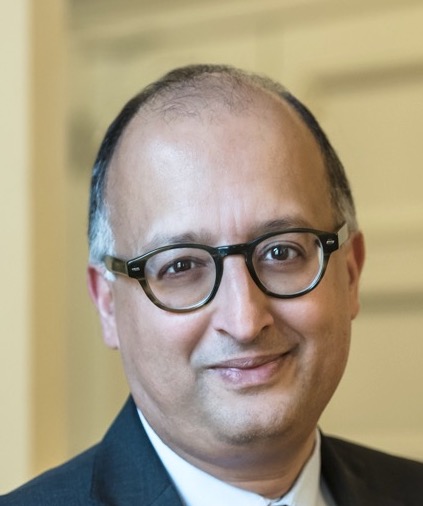
Mary Condon served as Dean of Osgoode Hall Law School from July 1, 2019 to August 31, 2023. She served as Associate Dean (Academic) from July 2016 to April 2018, and as Interim Dean from May 1, 2018 to June 30, 2019. Between 2008 and 2016 she was appointed by the Ontario government as a Commissioner and Board Member of the Ontario Securities Commission (OSC). In 2018, she was named one of the top 100 Most Powerful Women in Canada (Public Sector Category) by Women’s Executive Network. Between 2014 and 2016 she served as a member of Canada’s National Steering Committee for Financial Literacy. She was a member of the Board of Trustees of the York University Pension Fund between 2005 and 2014. She joined the Osgoode faculty in 1992, having been the first recipient of the Alan Marks Medal for her doctoral thesis at the Faculty of Law, University of Toronto.
Her research interests are focused primarily on the regulation of securities markets, investment funds, online investing, and pensions. She is co-author of Business Organizations: Practice, Theory and Emerging Challenges (with Robert Yalden, Janis Sarra, Paul Paton, Mark Gillen, Carol Liao, Michael Deturbide, Mohamed Khimji, Bradley Bryan and Gary Campo). She is co-author of Securities Law in Canada: Cases and Commentary (with Anita Anand, Janis Sarra and Sarah Bradley), [3rd edition, 2017]. She is the author of Making Disclosure: Ideas and Interests in Ontario Securities Regulation (UTP). She has also written articles, book chapters and policy papers on topics related to securities regulation and pensions policy and has given invited lectures on these topics in Canada and internationally.
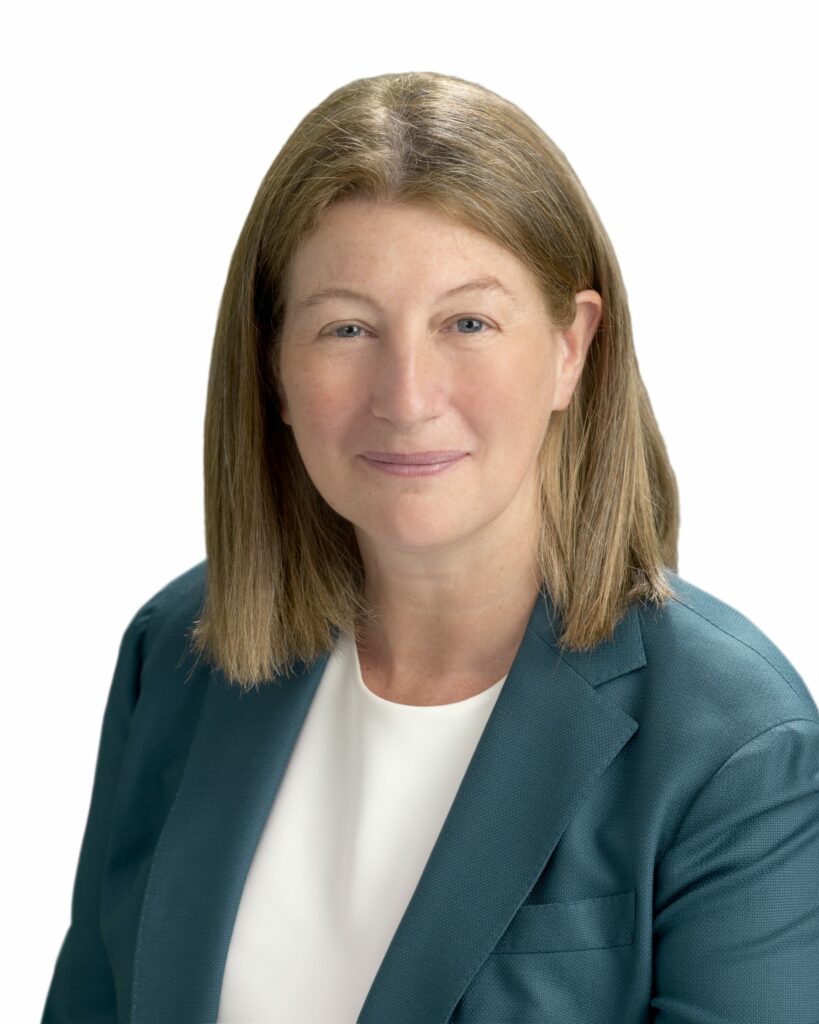
Erin Crandall is an Associate Professor in the Department of Politics and the Coordinator for the Law and Society Program at Acadia University. She holds a PhD in Political Science from McGill University. Her research sits primarily at the intersection of Canadian law and politics, including studies of judicial selection systems, constitutional amendment, and election law. Her work has appeared in the Canadian Journal of Political Science, Canadian Journal of Law and Society, and Public Policy and Administration, among other publications. Along with Andrea Lawlor (McMaster University), she is currently undertaking a SSHRC-funded project on public support for the Supreme Court of Canada.
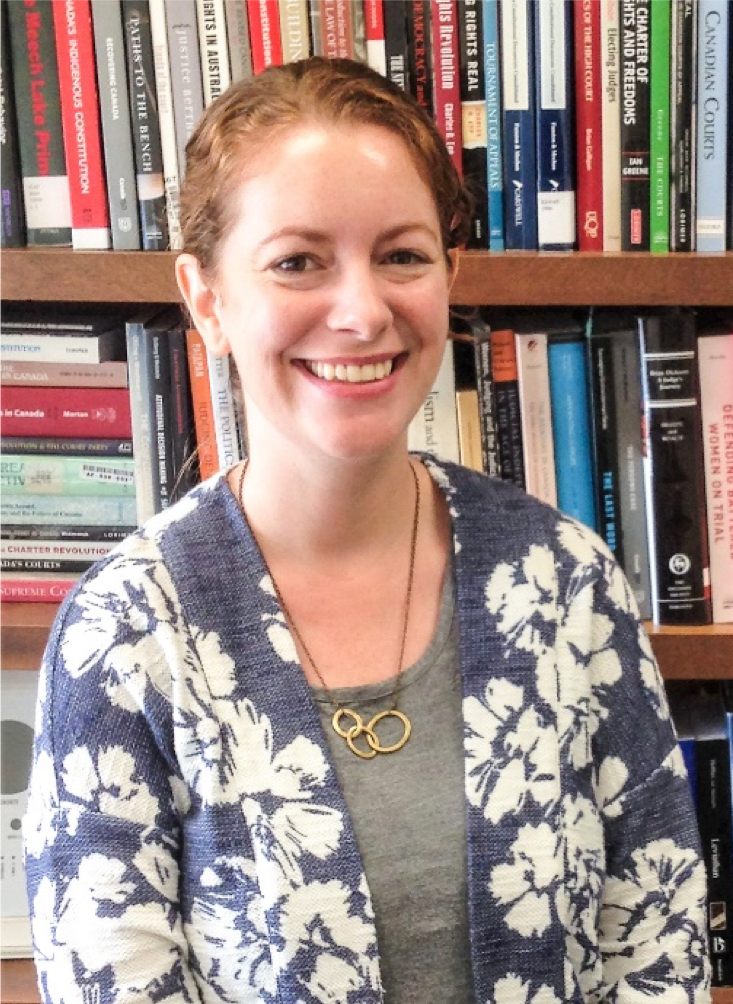
Adam Dodek is a Full Professor and former Dean of the University of Ottawa's Faculty of Law. He teaches and writes in the fields of Public Law, Constitutional Law, Legal Ethics and the Legal Profession. Adam was one of the founders of the University of Ottawa's Public Law Group and of the Canadian Association for Legal Ethics. Peter had a profound effect on Adam's career in many ways.
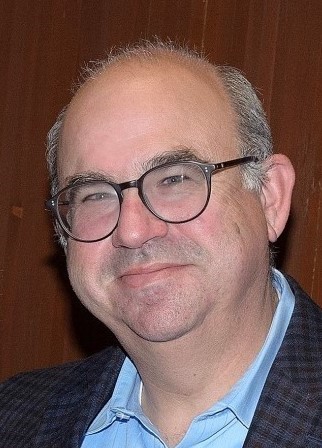
Laura is a litigator whose practice focuses on complex commercial litigation, class action defence, constitutional and other public and administrative law cases.
As a member of Blakes' Public Sector Crisis & Compliance group, Laura helps clients navigate high-stakes legal issues at the intersection of business and government. Laura advises on lobbying and gifting rules, conflict of interest regimes, and election finance legislation. She regularly litigates media and defamation cases, privacy, and access to information matters, and advises clients involved in government and internal investigations and public inquiries.
Laura has appeared as counsel at all levels of courts in Ontario and the Federal Court of Canada, as well as before administrative tribunals and arbitration panels. Prior to joining Blakes, Laura clerked at the Federal Court of Appeal.
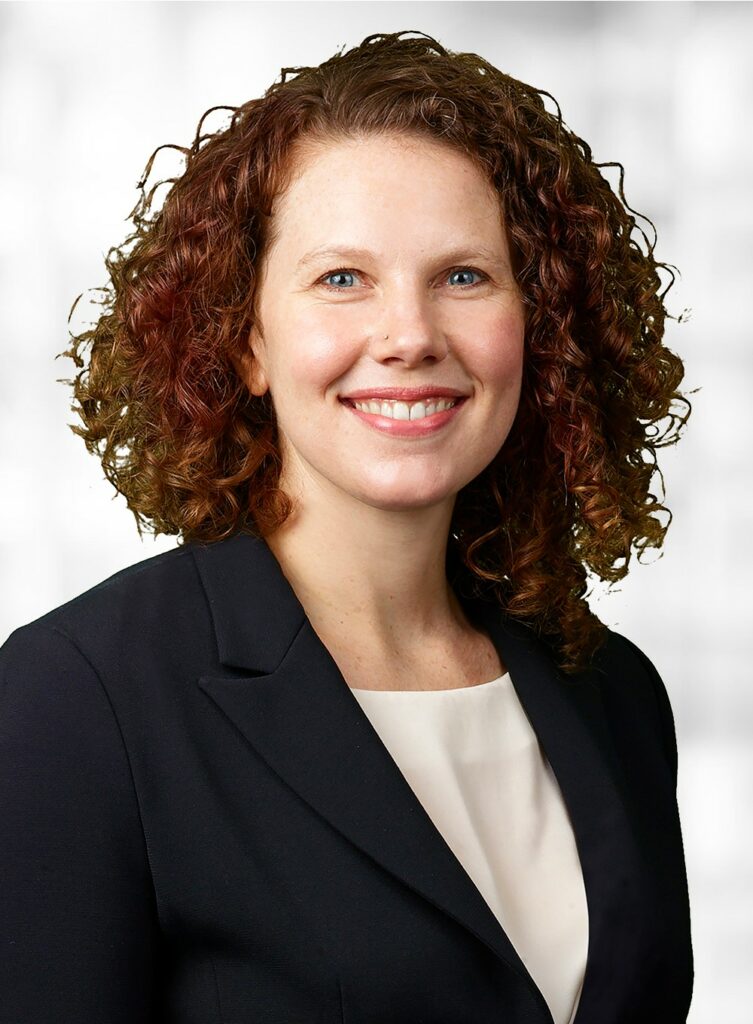
Trevor Farrow is the Dean and a Professor at Osgoode Hall Law School
Trevor C.W. Farrow, AB (Princeton), BA/MA (Oxford), LLB (Dalhousie), LLM (Harvard), PhD (Alberta), is the Dean and a Professor at Osgoode Hall Law School in Toronto. He is the Chair of the Canadian Forum on Civil Justice and was the founding Academic Director of the Winkler Institute for Dispute Resolution and former Director of the York Centre for Public Policy and Law. Professor Farrow is internationally recognized as a leading scholar on access to justice, legal process and the profession. His scholarship is widely published in Canada and internationally. He has taught and lectured at universities across Canada and around the world. Professor Farrow has received teaching awards from Harvard University and Osgoode Hall Law School. Professor Farrow was formerly a litigation lawyer in Toronto.

Richard Haigh is a full time professor at Osgoode Hall Law School and a Co-director of York’s Centre for Public Policy and Law. He has a doctorate from the University of Toronto in the area of freedom of conscience and religion and an LLM from Cambridge University. He has been a Senior Lecturer at Deakin University in Melbourne, Australia, and a Senior Advisor at the National Judicial Institute. His recent published works include papers analyzing quantitative and qualitative effects of interveners at the Supreme Court of Canada, the interpretation of amendments in legislation, the use of metaphor in constitutional adjudication, and division of powers in freedom of expression cases.
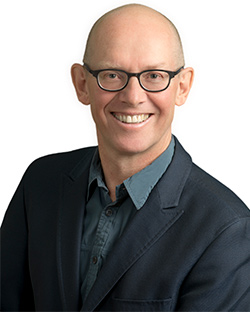
Holding an LL.D. from the University of Manchester, he has been a professor at Osgoode Hall Law School, York University since 1982. During that time, he has also held a variety of visiting appointments around the world, including University of Wales, London, Sydney, Monash, and Toronto. He was a Visiting Professor at Harvard Law School in 2007. He is appointed to the position of Distinguished Research Professor at York University, is elected to the Royal Society of Canada, and was awarded the University-wide Teaching Award. He is a legal theorist of international repute.
He has published and/or edited over 30 books, including Is Eating People Wrong?: Leading Cases and The Common Law. His most recent books include Fighting Fair: Legal Ethics For An Adversarial Age, It’s Too Late Stop Now: Law, Life and Lore and Hart, Fuller and Everything After: The Politics of Legal Theory.
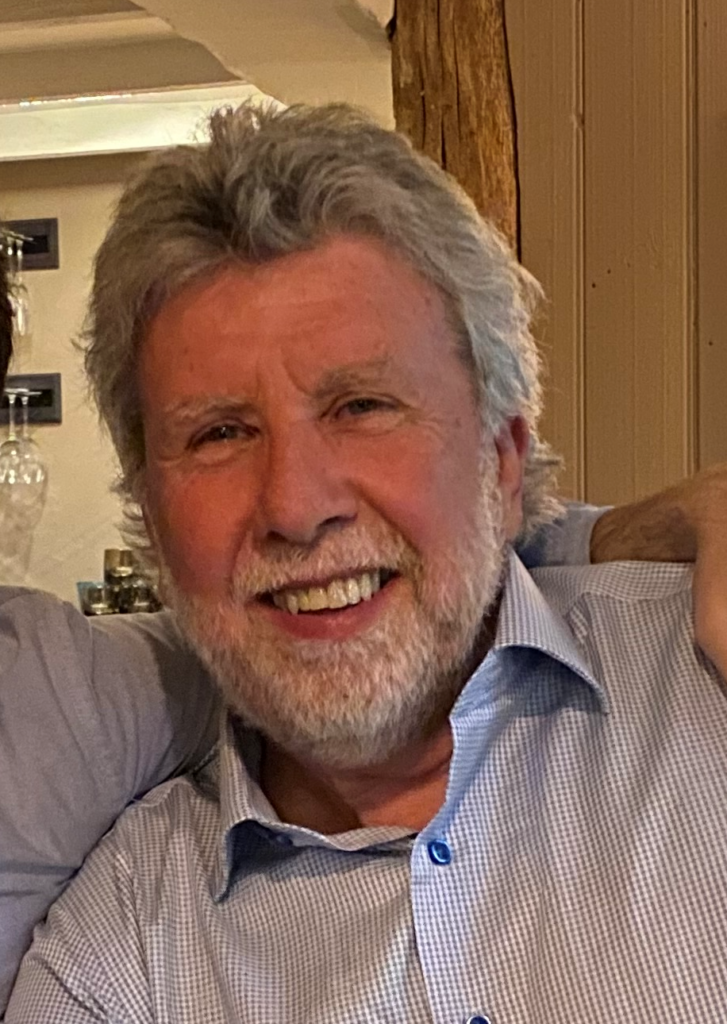
Justice Mahmud Jamal was appointed to the Supreme Court of Canada on July 1, 2021. He served as a justice of the Court of Appeal for Ontario from 2019 to 2021.
Before his appointment to the bench, Justice Jamal practised with Osler, Hoskin & Harcourt LLP for over 23 years in the fields of appellate litigation, constitutional and public law, class actions, and commercial litigation. He appeared before the Supreme Court of Canada as counsel to a party or intervener in 35 appeals addressing a wide range of civil, constitutional, criminal, and regulatory issues, including issues of Quebec civil law. He also appeared before the courts of seven provinces, the Federal Court, the Federal Court of Appeal, the Tax Court of Canada, and various federal and provincial administrative tribunals.
As a lawyer, Justice Jamal was a director of the Canadian Civil Liberties Association, The Advocates’ Society, and the Osgoode Society for Canadian Legal History. He was an advocacy advisor to the Supreme Court Advocacy Institute and a trustee of the Canadian Business Law Journal. He has taught constitutional law at the Faculty of Law of McGill University and administrative law at Osgoode Hall Law School, and he has published widely in his areas of practice. He was also chair of his firm’s national pro bono program and a member of its partnership board.
Justice Jamal is an adjunct professor at the Faculty of Law of McGill University, a senior fellow of Massey College at the University of Toronto, and the chair of the Ontario Rhodes Scholarship Selection Committee.
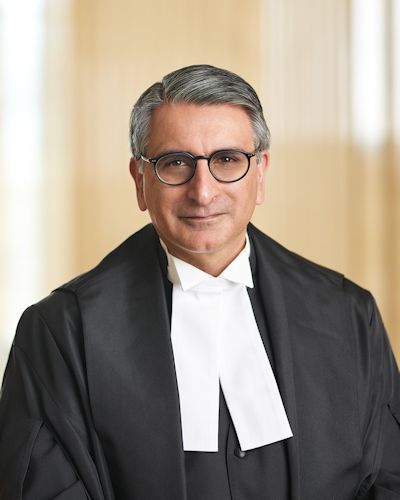
Dave Joe is a citizen of Champagne and Aishihik First Nations. He is a distinguished lawyer who was called to the bar in 1977 in the Yukon and in 1999 in British Columbia. Dave has worked as chief negotiator for the Council of Yukon First Nations and a number of Canadian First Nations. He still acts as legal advisor for Yukon, British Columbia, and Northwest Territories First Nations.
Emeritus Professor Kenneth Keith studied law at the University of Auckland, the Victoria University of Wellington and Harvard Law School. After being a clerk at the Magistrates’ Court in Auckland and a lawyer in the Department of External Affairs, he joined the law faculty at VUW where he taught from 1962 to 1964 and 1966 to 1991, interrupted by two years in the Office of Legal Affairs at the United Nations in New York and a shared position as Director of the New Zealand Institute of International Affairs.
From 1971 Professor Keith was a member of various law and constitutional reform bodies, including the Danks Committee on Official Information and the Royal Commission on the Electoral System. From 1986 to 1995 he was a member and President of the Law Commission. From 1982 to 2004 he sat in appeal courts in Western Samoa, the Cook Islands, Niue and Fiji. From 1995 until 2006 he was a member of the New Zealand Court of Appeal and an initial member of the Supreme Court which replaced the Judicial Committee of the Privy Council, on which he sat in 2001 and 2003. He was a member of various international arbitral tribunals from 1990 to 2020.
From 2006 to 2015 Kenneth Keith was a judge of the International Court of Justice in The Hague, the principal judicial organ of the UN, the first New Zealander to be elected to that body. At the end of that term he returned to the law faculty.
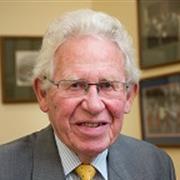
Professor Kidd White teaches Public and Constitutional Law and Jurisprudence at Osgoode Hall Law School, where she also serves as a Co-Chair of the Annual Osgoode Constitutional Law Cases Conference. Professor Kidd White holds a J.S.D. from New York University School of Law, where she was supervised by Professor Jeremy Waldron, and where she previously received the Jerome Lipper Prize for the top standing in her year's LL.M. class. Professor Kidd White writes on topics in constitutional theory, in legal and political philosophy, and in the burgeoning field of law and emotion. She is a Co-Editor of the Edward Elgar Research Handbook on Law and Emotion (2022). Her forthcoming sole-authored manuscript with Oxford University Press entitled, Emotions in Judicial Reasoning, analyzes the various roles emotions play in the adjudication of dignity claims.
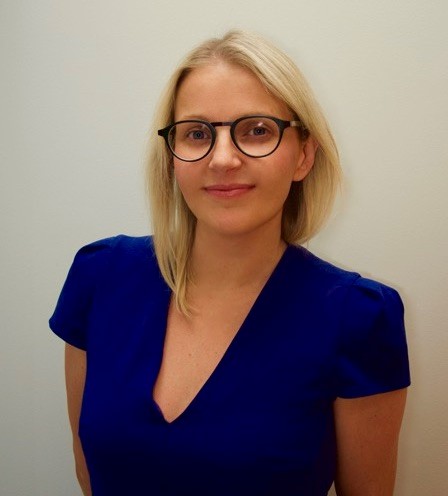
Professor Sonia Lawrence joined Osgoode’s faculty in 2001. She graduated from the University of Toronto’s joint LLB/MSW program, went on to serve as law clerk to Chief Justice Beverley McLachlin of the Supreme Court of Canada, and pursued graduate work at Yale Law School. Her work centers on the critical analysis of legal conception of equality.
Sonia has served as Assistant Dean of First Year, Director of Osgoode’s Graduate Program, and Director of the Institute for Feminist Legal Studies. She is current the President of the Canadian Association of Law Teachers. Professor Lawrence has taught constitutional and public law, a seminar in gender and equality, criminal law, a graduate methods seminar and a graduate research seminar and a graduate reading group organized around the concept of “social justice”, and in Osgoode’s ADI Program.

Professor, Co-director of LLM Tax Programs, Osgoode Hall Law School
She has published widely on Canadian, Chinese, international and comparative taxation. She is on the editorial board of World Tax Journal. Her research has been supported by significant external grants and recognized by distinctions, such as Tax Excellence Award from the Ontario Bar Association and Lifetime Contribution Award from the Canadian Tax Foundation. She has been an expert consultant to the Canadian government and international organizations, including the IMF, OECD and UN. Her work has been cited by Canadian courts, including the Supreme Court of Canada in Deans Knight Income Corp., Alta Energy and MacDonald. She was the co-author of Principles of Canadian Income Tax (Hogg, Magee and Li), 4th-8th edition.
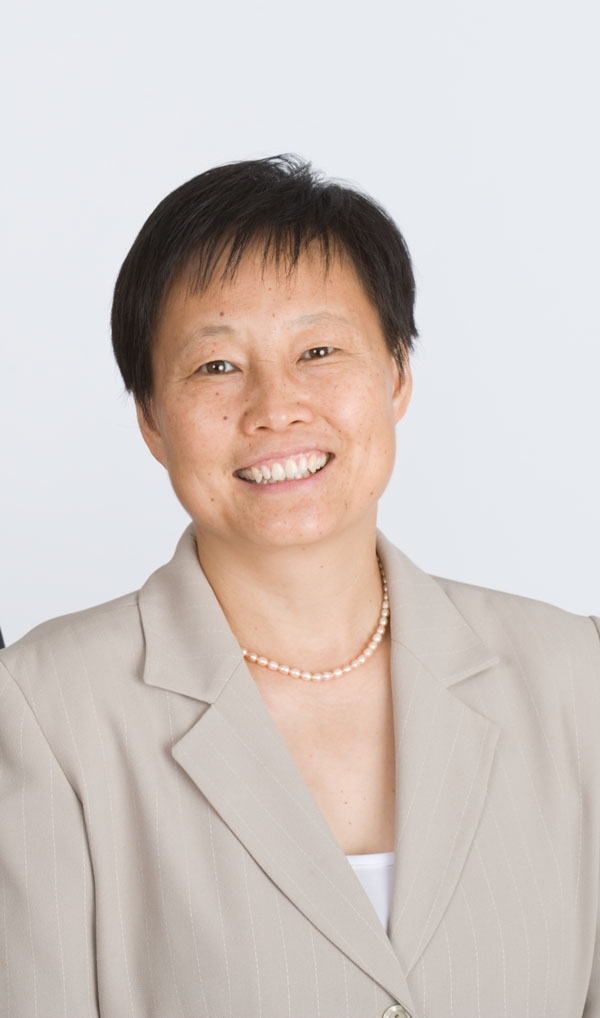
Justice James MacPherson has been a judge on the Court of Appeal for Ontario since 1999. From 1993-1999 he was a trial judge. Earlier in his career he was Dean of Law at Osgoode Hall Law School in Toronto, Executive Legal Officer at the Supreme Court of Canada, Director of Constitutional Law for the Government of Saskatchewan and a law professor at the University of Victoria in British Columbia.
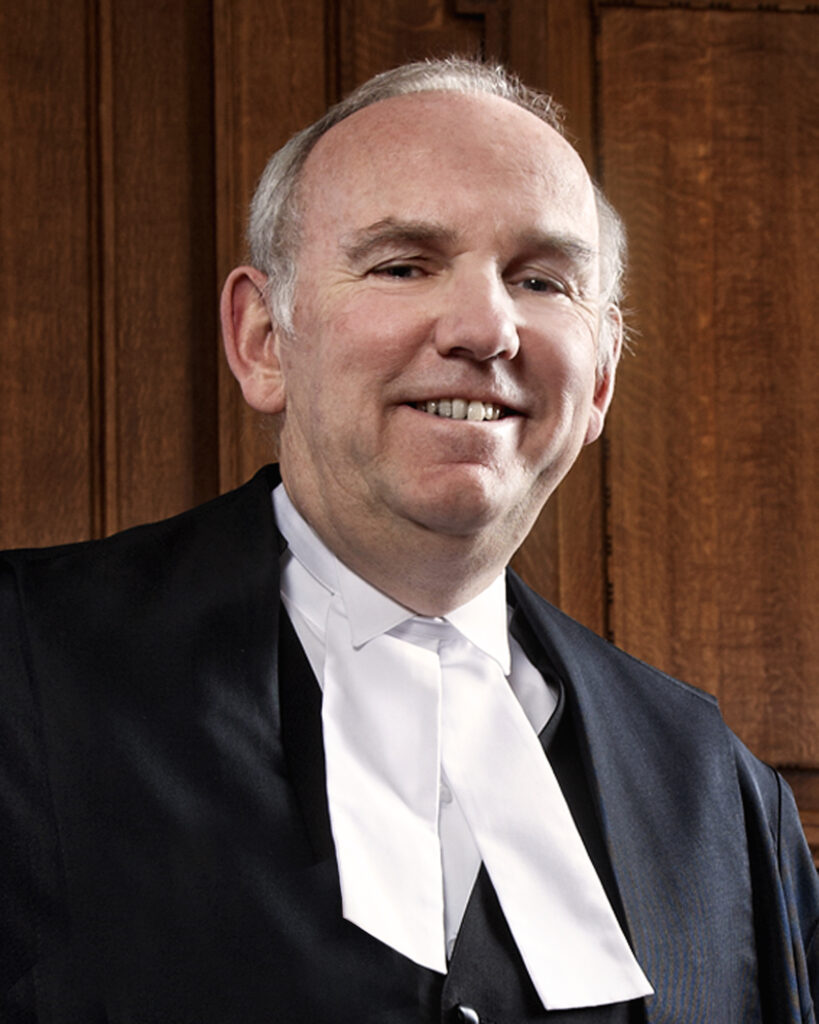
John D. McCamus is a University Professor, Professor Law Emeritus and former Dean, Osgoode Hall Law School of York University. He served as a law clerk at the Supreme Court of Canada for Chief Justice Laskin. His published work includes three texts, The Law of Contracts, 3d ed. (2020), The Law of Restitution, 2d ed. (2004), (now available in a current Looseleaf Edition), and An Introduction to the Canadian Law of Restitution and Unjust Enrichment (2020). From 1990 to 1996, he was a member, and then Chair of the Ontario Law Reform Commission. He served on the Advisory Committee for the Restatement of Restitution and Unjust Enrichment 3d (2011). From 2007 to 2019, he served as Chair of Legal Aid Ontario. He has served as a member of the Board of Directors of the Canadian Civil Liberties Association from 1986 to present and as Chair from 1992 to 2019.
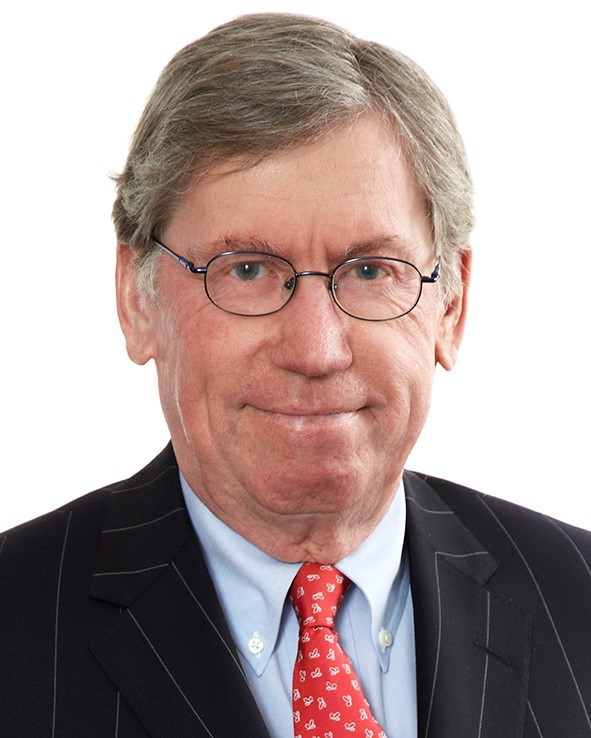
Justice Patrick J. Monahan was appointed to the Court of Appeal of Ontario in May 2023, having served as a member of the Ontario Superior Court of Justice from 2017 to 2023. Prior to his judicial appointment Justice Monahan was Deputy Attorney General for the Province of Ontario (2012-17), Provost and Vice President Academic of York University (2009-12), and Dean of Osgoode Hall Law School (2003-09). He was a faculty member at Osgoode Hall Law School for over two decades and a part-time counsel to a major Toronto law firm, acting in a wide variety of public law litigation at all levels of court.
Justice Monahan received degrees from the University of Ottawa and Carleton University, followed by an LL.B. from Osgoode Hall Law School, where he graduated as the gold medalist, and an LL.M. from Harvard Law School. He served as law clerk to Justice Brian Dickson of the Supreme Court of Canada and was admitted to the Bar of Ontario in 1985.
Justice Monahan played a leading role in the establishment of the Law Commission of Ontario, where he was the founding chair and served on the Board of Governors. His writing has been cited by courts and tribunals in Canada, including by the Supreme Court of Canada. In 2008, he was awarded the Mundell Medal for excellence in legal writing by the Attorney General of Ontario.
Michael H. Morris is a Senior General Counsel with the Department of Justice, Ontario Regional Office. Mr. Morris litigates public law cases on behalf of the federal Crown at every Court level. Mr. Morris was co-counsel for Canada, together with Professor Peter Hogg, in the 2004 Same-sex Marriage Reference at the Supreme court. He also was lead in Bedford v. A.G. Canada, a constitutional challenge to the provisions of the Criminal Code governing prostitution (decided in 2013). He was lead counsel for Canada on the Vavilov v. AGC (2019 SCC 65) and Bell Media/NFL v. AGC (2019 SCC 66) in which the Supreme Court has revised the test of standard of review in administrative law. Mr. Morris most recently was lead litigator on behalf of the federal Crown Respondent in the administrative law challenge Mason v. Canada (Citizenship and Immigration), 2023 SCC 21.
Mr. Morris frequently publishes (and presents at conferences) in constitutional law, Crown liability, advocacy, administrative law and ethics and professionalism issues as they apply to public sector lawyers. He is Adjunct Professor at the University of Toronto teaching constitutional law beginning in January 2024. He is the past 2022 and 2023 co-Chair of the Canadian Institute for Advanced Administrative Law and Practice, past co-Chair and continuing frequent speaker in Osgoode Hall’s National Forum on Administrative Law and current co-chair of the 2023 (and upcoming 2024) Crown Liability conferences, as well as other university and Advocate Society CLE programs. Mr. Morris is a Faculty Member of the Supreme Court Advocacy Institute. He is also co-author of the 2019 Annotated Crown Liability and Proceedings Act book published by Thomson Reuters.Mr. Morris was awarded the Elizabeth II Diamond Jubilee Medal for outstanding contribution to Canada in 2012.
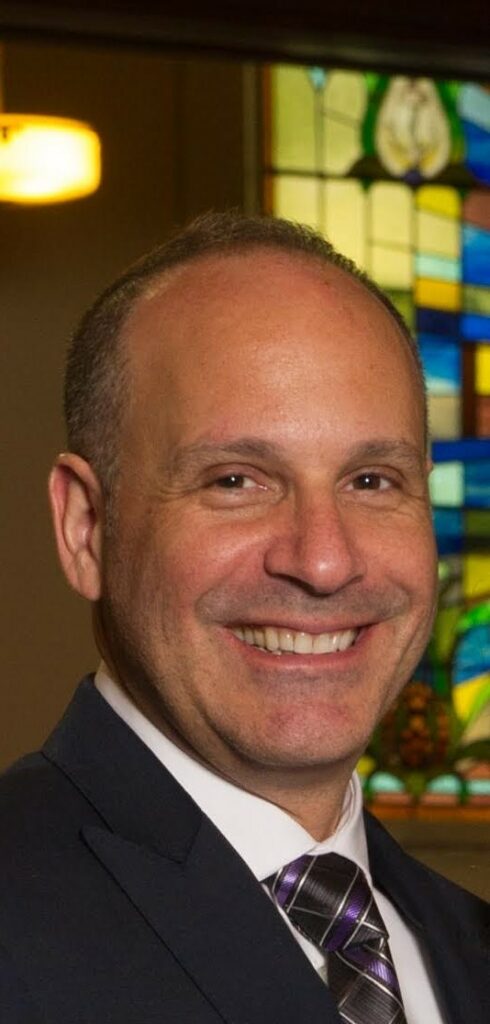
Justice Sheilah L. Martin holds a Bachelor of Civil Law and a Bachelor of Common Law from McGill University, a Master of Laws from the University of Alberta, and a Doctorate from the University of Toronto. Justice Martin worked as a researcher, law professor and then Dean of the University of Calgary’s Faculty of Law. Justice Martin practiced criminal and constitutional litigation and civil litigation and was awarded a Queen’s Counsel. Justice Martin was appointed to the Court of Queen’s Bench for Alberta in 2005, also serving as a Deputy Judge for the Supreme Court of Yukon when she was appointed to the Courts of Appeal of Alberta, the Northwest Territories, and Nunavut. She was appointed to the Supreme Court of Canada in December 2017.
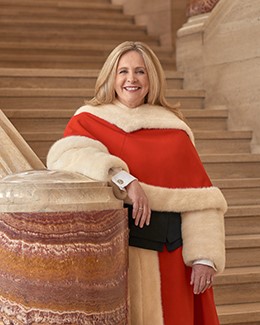
Emmett Macfarlane is a political scientist whose research examines the intersection of constitutional law, governance, and public policy, with particular interests in judicial decision-making, constitutional change, and Charter rights. He is the author of Governing from the Bench: The Supreme Court of Canada and the Judicial Role (UBC Press, 2013), Constitutional Pariah: Reference re Senate Reform and the Future of Parliament (UBC Press, 2021), and Legislating under the Charter: Parliament, Executive Power, and Rights (with Janet L. Hiebert and Anna Drake) (University of Toronto Press, 2023). He has also published four edited books and 25 journal articles, including work in I-CON: the International Journal of Constitutional Law, International Political Science Review, McGill Law Journal, and Osgoode Hall Law Journal, among others. He has provided unpaid, non-partisan constitutional advice to the Government of Canada on Senate reform and the Supreme Court appointments process.
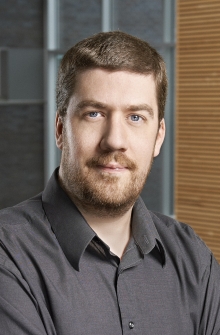
Justice Andromache Karakatsanis was appointed to the Supreme Court of Canada in October 2011. She had been appointed a judge of the Court of Appeal for Ontario in March 2010 and a judge of the Ontario Superior Court of Justice in December 2002.
Justice Karakatsanis is a graduate of the University of Toronto and Osgoode Hall Law School.
Following her call to the Bar in 1982, Andromache Karakatsanis served as a law clerk to the Ontario Court of Appeal. In private practice, she practised criminal, civil and family litigation in Toronto for several years. She then served in the Ontario Public Service for 15 years in a number of senior positions.
During her career in public service, Andromache Karakatsanis served as Chair and Chief Executive Officer of the Liquor Licence Board of Ontario (1988-95); as Assistant Deputy Attorney General and Secretary for Native Affairs (1995-97); and as Deputy Attorney General (1997-2000).
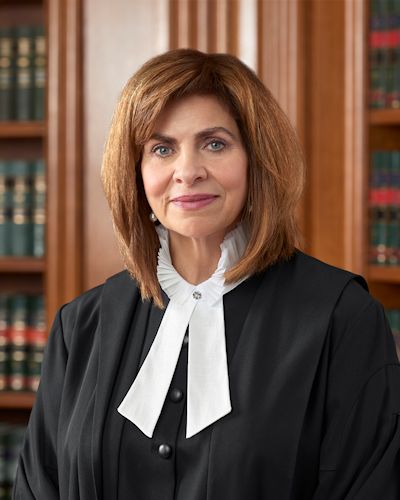
Justice Nicholas Kasirer graduated from McGill University in 1985 with a Bachelor of Civil Law and a Bachelor of Laws, following a Bachelor of Arts from the University of Toronto. In 1986, he completed a postgraduate Diplôme d’études approfondies in International Law at Université Paris I (Panthéon-Sorbonne). After clerking for the Honourable Jean Beetz of the Supreme Court of Canada, he became a member of the Barreau du Québec in 1987.
From 1989 to 2009, Justice Kasirer was a professor at McGill University’s Faculty of Law, where he taught in several fields, including the law of obligations, property law, family law, and wills and estates law in both civil and common law. He was also a visiting professor at various universities, including the Université Paris I (Panthéon-Sorbonne). He served as Dean of the Faculty of Law at McGill University from 2003 to 2009.
Justice Kasirer held the James McGill Chair from 2002 to 2009 and directed the Paul-André Crépeau Centre for Private and Comparative Law from 1996 to 2003. He has authored over a hundred publications in a variety of fields, including civil law, comparative law, and jurilinguistics.
Since 1990, Justice Kasirer has been secretary and member of the Editorial Committee of the Private Law Dictionary / Dictionnaire de droit privé at the Faculty of Law at McGill University. He is a member of the editorial committees of the Revue du Notariat, the Revue de droit de l’Université de Sherbrooke, the Louisiana State University Journal of Civil Law Studies, the ISAIDAT Law Review of Turin (Italy) and the Revue internationale de droit comparé in Paris.
In 2009, he was appointed Justice of the Court of Appeal of Quebec. During the last 10 years, he has rendered many judgments in various fields, such as private law, criminal law, and public law, including constitutional law.
Since 2006, he has been a Titular Member of the International Academy of Comparative Law (Paris). In 2012, the Université de Sherbrooke awarded him an honorary doctorate in law. In 2008, he was elected a Fellow of the Royal Society of Canada.
The Honourable Nicholas Kasirer was appointed to the Supreme Court of Canada on September 16, 2019.
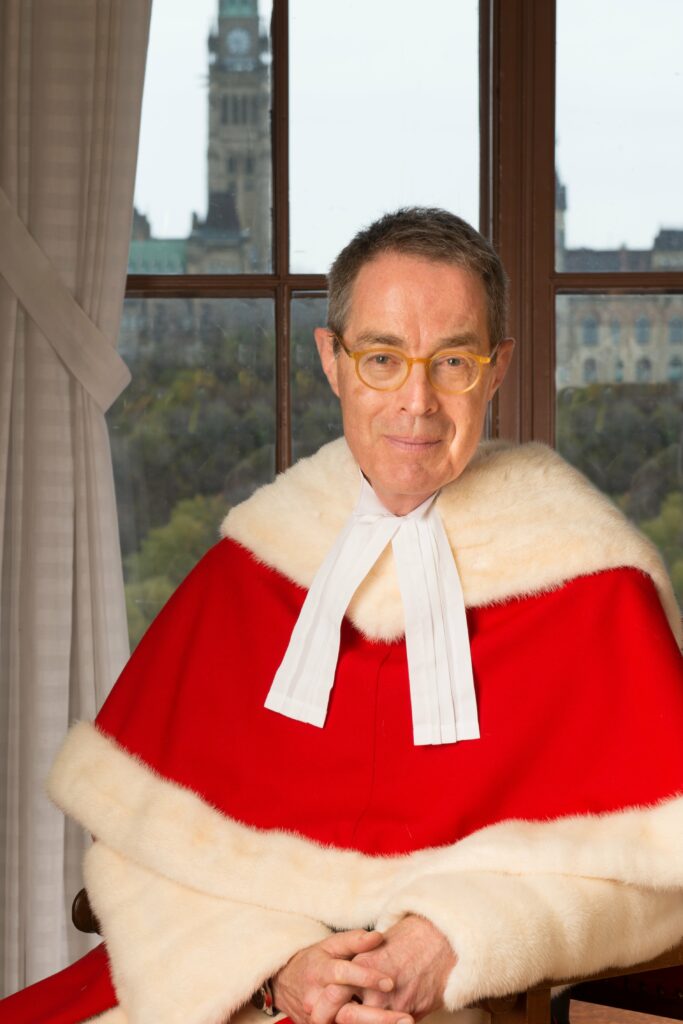
Professor Ryder joined Osgoode Hall Law School’s faculty in 1987. His research and publications focus on a range of contemporary constitutional issues, including those related to federalism, equality rights, freedom of expression, Aboriginal rights, and Quebec secession. He has also published articles that explore the historical evolution of constitutional principles and is currently researching the history of book censorship in Canada.

Superior Court of Justice, Toronto since 2019. Called to the Bar in 1986, practiced civil, criminal and regulatory litigation with a focus on media and constitutional law. Counsel on leading Charter cases including Morgentaler (1988), Canadian Foundation for Children (2004), and Grant v Torstar (2009). Treasurer (President), Law Society of Ontario, 2016-2018; Bencher, 2007 - 2016. Past Chair/President, Law Foundation of Ontario, Pro Bono Ontario, Canadian Media Lawyers Association. Former Director, Canadian Civil Liberties Association, Canadian Journalism Foundation, Family Service Toronto, Advocates’ Society, National Youth Orchestra. Taught media law at the University of Toronto Faculty of Law; Trial Advocacy at Osgoode Hall Law School. Fellow, American College of Trial Lawyers, International Academy of Trial Lawyers. Canadian Lawyer’s 25 Most Influential Lawyers, 2011, 2018.
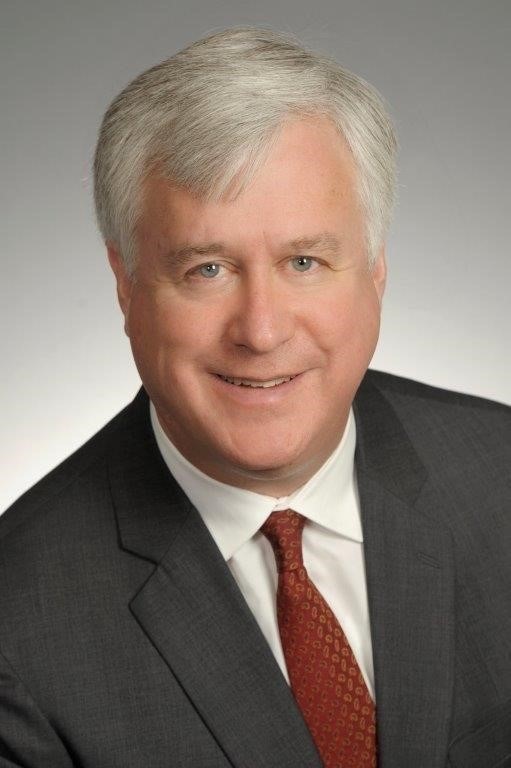
General Counsel at Department I Justice Canada
Justice Lorne Sossin was appointed to the Court of Appeal for Ontario in November 2020. Prior to this appointment, Justice Sossin served as a judge of the Superior Court of Justice (2018-2020). Before this initial appointment, Justice Sossin served as Professor and Dean of Osgoode Hall Law School, at York University (2010-2018). Previously, Justice Sossin was a Professor with the Faculty of Law at the University of Toronto (2002-2010) and a former Associate Dean (2004-2007). He served as the inaugural Director of the U. of T. Centre for the Legal Profession (2008-2010).
Justice Sossin was as a law clerk to former Chief Justice Antonio Lamer of the Supreme Court of Canada, a former Associate in Law at Columbia Law School and a former litigation lawyer with the firm of Borden & Elliot (now Borden Ladner Gervais). He received his LL.B. from Osgoode Hall Law School and was called to the Bar of Ontario in 1996. Justice Sossin holds doctorates from the University of Toronto in Political Science and from Columbia University in Law.
Justice Sossin has published numerous books, journal articles, reviews and essays, including Administrative Law in Practice: Principles and Advocacy (Toronto: Emond Montgomery, 2018) (with Emily Lawrence); Boundaries of Judicial Review: The Law of Justiciability in Canada 2nd ed. (Toronto: Carswell, 2012); and Judicial Independence in Context (Toronto: Irwin, 2010) (co-edited with Adam Dodek). Justice Sossin is also the recipient of the 2012 David Mundell Medal for excellence in Legal Writing.
Justice Sossin served as Research Director for the Law Society of Upper Canada’s Task Force on the Independence of the Bar, and has written commissioned papers for the Gomery Inquiry, the Ipperwash Inquiry, and the Goudge Inquiry. He also served as the Vice Chair of the Ontario Health Professions Appeal and Review Board and Health Services Appeal and Review Board, as Integrity Commissioner for the City of Toronto, and as the Open Meeting Investigator for the City of Toronto.
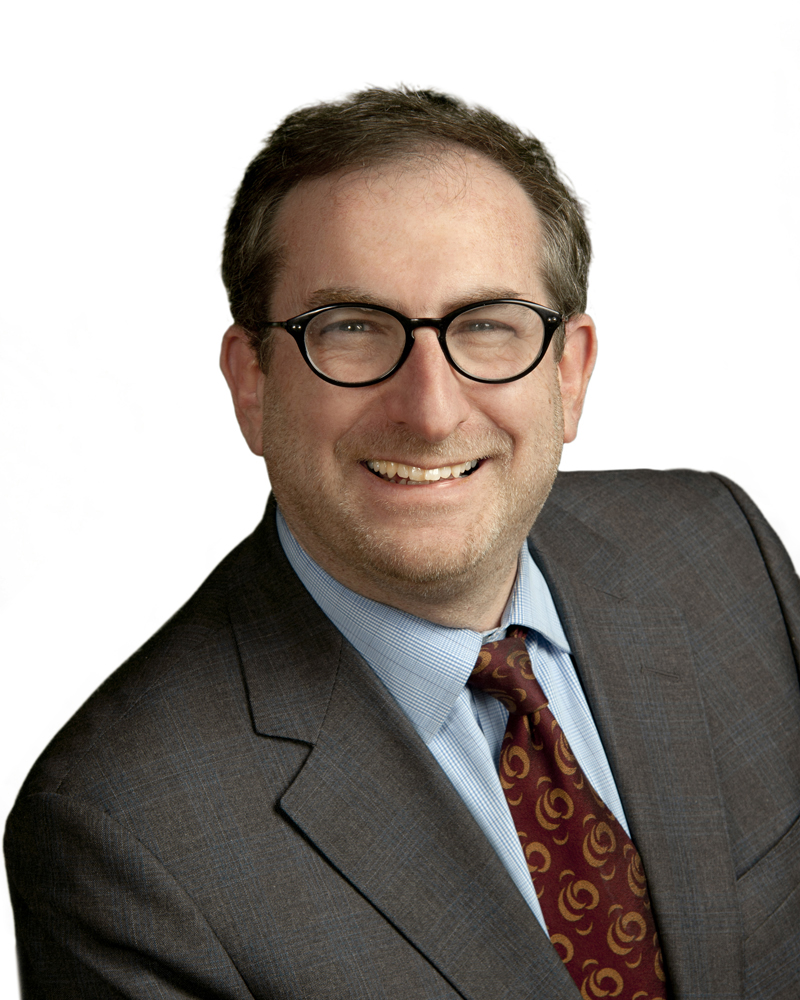
Associate Solicitor Land Use Planning and Development, City Of Guelph
Scott Wilkie is a Research Fellow of the Amsterdam Centre for Transfer Pricing and Income Allocation, part of the Amsterdam Center for Tax Law of the University of Amsterdam, a recently retired Distinguished Professor of Practice at Osgoode Hall Law School, York University, and a retired partner of and senior counsel to Blake, Cassels & Graydon LLP. Widely published, he speaks and writes broadly about taxation, notably international taxation and tax policy. He is a former vice-chair of the Permanent Scientific Committee of the International Fiscal Association, served as president of the Canadian branch of the International Fiscal Association, and is a past chair of the Canadian Tax Foundation.
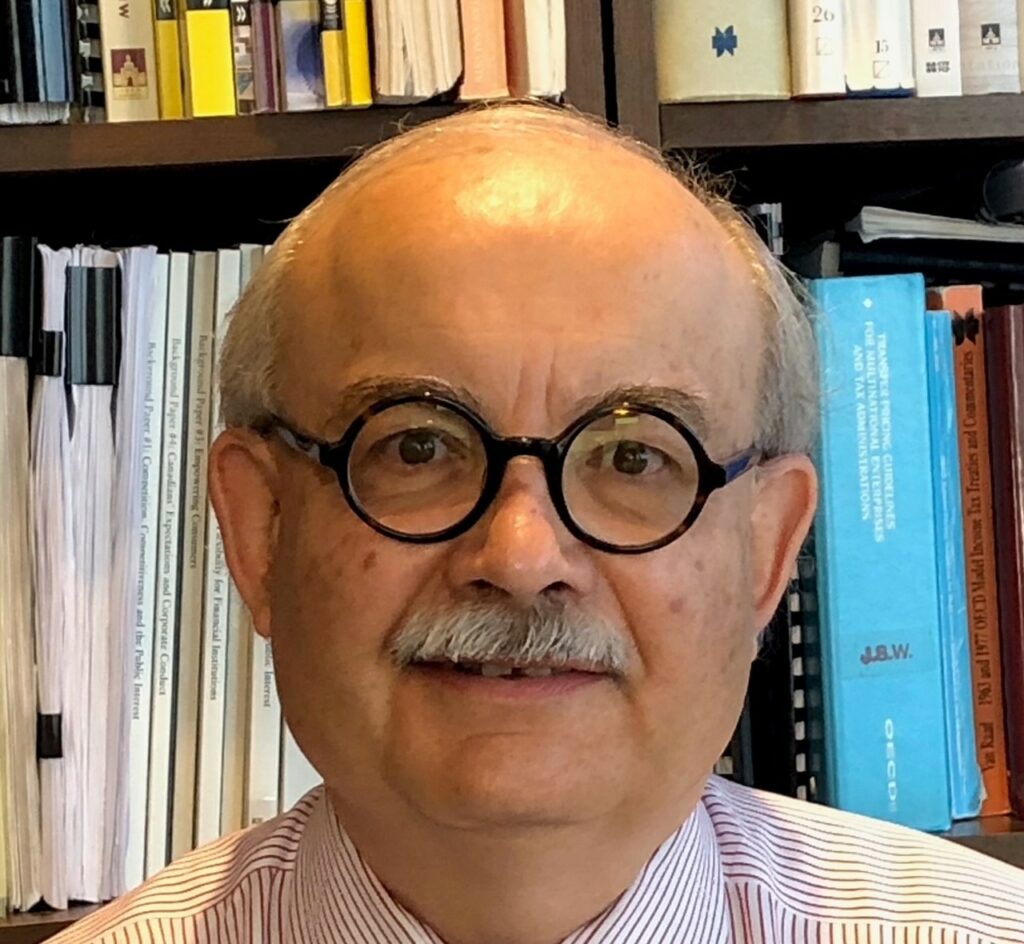
Wade Wright is an Associate Professor in the Faculty of Law at Western University, where he also co-directs the Public Law Research Group. His research interests span constitutional law, administrative law and Crown liability. He is the co-author, with Peter Hogg and Justice Patrick Monahan, of Liability of the Crown, 4th ed. (2011) (new edition forthcoming), and in 2020, he was invited to assume authorship of Peter Hogg’s seminal Constitutional Law of Canada treatise. He holds two university degrees in music, as well as degrees in law from Osgoode Hall Law School (LL.B., Gold Medalist), the University of Cambridge (LL.M., First-Class Honours) and Columbia Law School (J.S.D.). He was a law clerk for Chief Justice Beverley McLachlin at the Supreme Court of Canada. In 2021, he won Western Law’s teaching award, and in 2023, he was appointed a Western University Faculty Scholar.

Alison Young is the Sir David Williams Professor of Public Law at the University of Cambridge and a Fellow of Robinson College. She works on constitutional theory and public law and is the author of Democratic Dialogue and the Constitution (OUP 2017). Her most recent book, Unchecked Power (Bristol, 2023) examines constitutional change in the UK's post-Brexit constitution.

Cara has a degree in Political Science from McGill University and law degrees from Osgoode Hall and New York University. She was called to the Bar of Ontario in 2005 and served as a judicial law clerk to the Honourable Justice Ian Binnie of the Supreme Court of Canada. Cara worked at a large national law firm, and then was Director of the Fundamental Freedoms Program at the Canadian Civil Liberties Association (CCLA). She is currently Legal Counsel at Ontario's Office of the Information and Privacy Commissioner.


